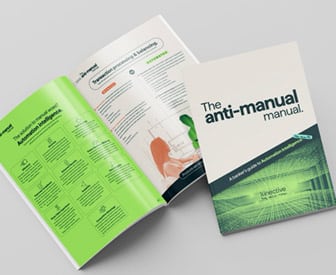(Note: This article has been updated based on news confirmed as of 9 a.m., Nov. 22. The updated article reflects the reinstatement of Sam Altman and Greg Brockman at the helm of OpenAI.)
On Nov. 17, the OpenAI board shocked the tech world by announcing that Sam Altman, co-founder and CEO, had been fired. Less than a week later, it appears that Altman is returning to the helm of OpenAI, with the previous board being the casualties of this disruptive week. It appears that it will not be business as usual at OpenAI going forward, but business as adjusted based on what transpired over five days in November 2023.
In a still-evolving story, Greg Brockman, OpenAI president, decided to follow Sam Altman out of OpenAI, and now he is also heading back to remain president of the firm that made ChatGPT a household name. The reversal of fortune for Altman and Brockman was likely the result of an open letter to the OpenAI board, declaring that a vast majority (90%) of OpenAI’s staff threatened to quit and join Altman and Brockman if the OpenAI board didn’t reinstate Altman.
The return of Altman and Brockman came as a result of OpenAI executives continuing discussions about the potential of the leaders rejoining the startup’s executive ranks. Microsoft CEO Satya Nadella (who had previously hired the pair to join Microsoft) said he was open to the idea of Altman and Brockman rejoining OpenAI, according to an interview with CNBC on Monday, Nov. 20. Nadella also indicated a desire for a change of the OpenAI board.
Microsoft, which had invested $10 billion in OpenAI in January 2023, could benefit the most from this week’s disruption. Some predict that, in the end, the OpenAI board will be restructured with an even stronger partnership with Microsoft.
Whatever happens when the dust settles at both OpenAI and Microsoft, there will undoubtedly be a shift in the future trajectory of generative AI and its emerging applications in the marketplace, including retail banking, at a time of significant growth in the testing and deployment of generative AI solutions.
It is interesting that this frenetic week at OpenAI occurs just a few days from the one-year anniversary of ChatGPT’s introduction. It prompts questions as the banking industry moves forward with generative AI.

The New AI: A Banker’s Guide to Automation Intelligence
Manual tasks across channels is costly. And while AI is hot, there’s a simpler way to bring efficiency that many bankers have overlooked.
Read More about The New AI: A Banker’s Guide to Automation Intelligence

The Power of Localized Marketing in Financial Services
Learn how to enhance your brand’s local visibility, generate more leads, and attract more customers, all while adhering to industry regulations and compliance.
Read More about The Power of Localized Marketing in Financial Services
What a Year for Generative AI
Since unveiling ChatGPT on November 30, 2022, OpenAI has propelled conversational AI into the mainstream. The viral chatbot sparked global fascination with the potential of generative artificial intelligence and large language models (LLMs).
For banks, ChatGPT represented a watershed moment in the evolution of customer service, content creation, digital experience and process automation using human-like AI. JPMorgan Chase is reportedly developing plans to use ChatGPT and artificial intelligence to help customers pick appropriate investments. Bank of America has used enhanced capabilities with its chatbot, Erica, to build customer profiles and to recommend products and increase engagement.
Most financial institutions are still “kicking the tires” of generative AI. They are determining how these enhanced capabilities will impact product roadmaps and developing approaches to managing risks around AI ethics and biases. Will the leadership shakeup at OpenAI (and Microsoft) stall banking adoption amid uncertainty? Or will fresh thinking unlock bolder innovation?
Read more: ChatGPT in Banking: Balancing Its Promise and Its Risks
Current Use Cases for Generative AI
For incumbent banks, generative AI helps to solve a prime pain point: high volumes of repetitive service inquiries. ChatGPT has always represented a promising avenue to deflect these from human staffers to improve efficiencies. Many larger financial institutions like Wells Fargo and Bank of America have developed customer service chatbots integrating ChatGPT to automate common requests like checking balances, transaction details, address changes and more.
Morgan Stanley created an AI tool that gives financial advisors speedy access to the bank’s “intellectual capital,” a database of about 100,000 research reports and documents. This tool saves time for advisors and customer service employees when they have questions about markets, recommendations and internal processes, according to Morgan Stanley.
Want to go deep on AI best practices for banks?
Attend our AI Masterclass — Unlocking the Power of Artificial Intelligence in Banking — at The Financial Brand Forum 2024 on May 20-22 in Las Vegas. Led by Ron Shevlin, chief research officer at Cornerstone, this three-hour workshop will be jam-packed with lessons learned from industry leaders and real-world case studies.
For more information and to register, check out The Financial Brand Forum website.
ChatGPT also shows early potential to engage and inform retail banking customers, delivering personalized financial advice at scale. Spain’s Banco de Sabadell guides users on mortgage options through its AI assistant.
JPMorgan Chase is developing an AI-powered service that will leverage artificial intelligence to select investments for customers, according to company filings. The product, called “IndexGPT” will use cloud computing capabilities to analyze and select securities tailored to customers’ individual needs.
ChatGPT is also generating volumes of banking content from scratch. Some organizations are using AI for mass customizing of customer portfolio commentary, while organizations like SouthState Bank are automating personalized insights within monthly communications.
Generative AI at the One-Year Mark:
Human oversight remains critical. But ChatGPT and other generative AI tools are proving adept at crafting helpful banking communications tailored to individual users in their financial contexts.
Cost and efficiency motivate many of these early experiments. However, the potential for a superior conversational experience also plays a part. Done right, ChatGPT can deliver personalized, contextual interactions that feel natural. As the technology’s capabilities improve, AI could help banking institutions capture market share.

How Could Disruption at OpenAI Impact Banking?
OpenAI’s leadership disruption has been said to center on differing perspectives on the future focus of OpenAI growth. When formed, OpenAI committed to develop AI safely and apply it broadly for humanity’s benefit. Its nonprofit origins shaped an ethos of transparency, ethics and control. Some observers speculate that Altman wanted to increase the commercialization of OpenAI’s technology more rapidly. As a nonprofit research company, OpenAI’s board had the independence to fire Altman and remain focused on more altruistic motives.
The reinstatement of leadership suggests OpenAI will continue taking measured steps deploying disruptive generative AI. The proposed board appears to understand the technology’s society-altering impact if mismanaged.
At the same time, a great deal of funding of OpenAI (and ChatGPT) has come from Microsoft.
Offering to hire both Altman and Brockman (and potentially hundreds of existing OpenAI technologists, many of whom threatened to quit if Altman wasn’t brought back to OpenAI) would have helped to protect Microsoft’s position as a market leader and prevent either leader from joining an alternative provider. The willingness to let both leaders rejoin OpenAI illustrates the higher commitment to moving the innovation around generative AI to continue.
Many believe what occurred at both OpenAI and Microsoft ends up being a doubling down on AI growth, serving to support the acceleration of how banks leverage AI for service and support in the future:
- Product integration – With the renewed commitment to OpenAI leaders and key technologists at OpenAI, and with Microsoft’s support, there could be tighter integration between Azure and OpenAI models. This may simplify enterprise implementation of AI by banks through Microsoft cloud services they already use.
- Increased access to tools– With OpenAI in the spotlight and with Microsoft’s support, there will likely be expanded access to enhanced OpenAI models like GPT-4 for its customers. Banks could benefit from Microsoft’s enterprise relationships to deploy more advanced AI to their customers.
- Mainstream adoption – Microsoft’s massive reach and resources could speed up the mainstream adoption of generative AI solutions for banks and other industries. Both Microsoft and OpenAI could also increase comfort levels with AI-powered automation as transparency and safety measures are improved.
- Risk management – Microsoft and OpenAI will most likely increase their focus on built-in content moderation, bias mitigation and industry-centric compliance tools. This could reduce some risks of deploying AI in banking and reduce some existing hesitation by legacy banks to implement generative AI solutions.
- Increased competition – With the potential that Microsoft scales OpenAI models across its cloud platform, it may offer AI access at reduced costs. This could help overcome budget hurdles for AI adoption in banking.
- New capabilities – Despite the huge investment Microsoft has already made in the OpenAI technology, it has already illustrated a desire to pour even more resources into developing next-generation AI. Despite the turbulence in the marketplace over the past week, this may open new possibilities for innovation in enhanced conversational virtual assistants for banking.
Listen to Banking Transformed Interview Here:
The Promise and Peril of ChatGPT in Banking (Part 1)
The Promise and Peril of ChatGPT in Banking (Part 2)
Read more: Retail Banking Priorities Have Shifted in 2023

Improve Your Business Outcomes Through Data & Analytics
Gain centralized access to the credit bureaus and 20+ alternative data sources. Leverage advanced analytics to optimize marketing campaigns and loan decisions.
Read More about Improve Your Business Outcomes Through Data & Analytics

Industry Cloud for Banking from PwC
See how PwC's Industry Cloud for Banking can help solve everyday business challenges.
Risks and Rough Spots Remain that Banks Must Consider
ChatGPT’s retail banking impact has not progressed without challenges over the past year. User expectations run high, but today’s limitations are also apparent. Many banks report accuracy issues with AI responses, especially involving access to user accounts and personal data privacy policies. Seamless handoff between bots and human agents remains elusive.
And some consumers simply favor human interactions for sensitive money topics.
There are also hurdles for product rollouts. Integrating siloed data and core banking systems with AI tools poses complex technical challenges. Change management and building internal buy-in across stakeholders takes time and education. And regulatory barriers also exist. Using generative AI for personalized financial advice raises compliance considerations. Other risks like bias and misinformation necessitate diligent oversight.
Above all, building trust remains paramount. One misleading ChatGPT interaction can undermine customer confidence. Banks must ensure transparency and integrity in AI communications.
Potential risks span ethics, compliance and reputational dimensions:
- Privacy – Banking conversations contain personal financial information demanding confidentiality.
- Security – Generative chatbots require robust firewalls against cyber exploitation.
- Bias – Without proper design, AI could propagate unfair assumptions.
- Misinformation – Inaccurate AI outputs require ongoing training.
- Regulation – Guidelines on digital communications must be followed.
OpenAI and Microsoft will need to aggressively acknowledge these concerns and others (such as any potential job displacement). Leadership at both companies must continue to put an emphasis on responsible AI across all sectors.
Read more:
- What Banking and Tech Leaders Think of Generative AI
- ChatGPT Will Become ‘ChatOMG!’ in 2024, Forrester Predicts
- A Generative AI Decision-Making Guide for Community Banks and Credit Unions

Forging the Future of Finance
One year since its launch, ChatGPT has demonstrated enormous disruptive potential across industries – but especially for already digital-centric fields like retail banking. As banks and credit unions continue navigating this promising terrain, it’s clear conversational AI will play a pivotal role in the future of financial services engagement. ChatGPT’s next act has only just begun.
Despite unknowns, OpenAI’s monumental AI breakthroughs and the heavy investment by Microsoft make future disruption of banking inevitable. How exactly depends on ongoing governance beyond initial pilots and the desired direction both OpenAI and Microsoft intend to take going forward. Open communication and collaboration between key AI providers, financial institutions and authorities will be essential to prudently expand access and capabilities. Striking the right balance can unlock transformational gains in efficiency, personalization and inclusion.
The Potential of Generative AI:
According to Gartner, within five years over a third of customer service operations will integrate conversational AI, up from less than 5% today.
Already, next-generation ChatGPT upgrades promise enhancements like personalized memory, improved reasoning and user context. Voice capabilities will support phone applications.
But, as we have witnessed in the past week, proceeding unchecked or with a lack of transparency risks public backlash that derails progress. OpenAI’s founding ethos of responsibility seems ingrained enough in the new management team to maintain measured pacing. Self-policing growth also serves Microsoft’s best interests.
Ultimately, retail banking is just starting its generative AI journey. Where OpenAI and Microsoft take this technology next will shape the trajectory. But whether gradual evolution or rapid revolution, the future looks set to be written together.
From our archives, Jim Marous test drives ChatGPT: Our ChatGPT Interview Shows AI Future in Banking Is Scary-Good







